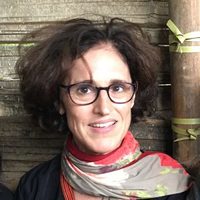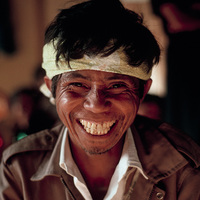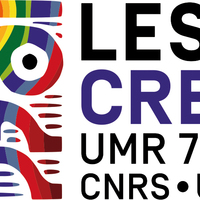Deprecated: strpos(): Passing null to parameter #1 ($haystack) of type string is deprecated in /var/www/html/themes/BBCFoundation/view/omeka/site/item/show.phtml on line 31
Deprecated: strpos(): Passing null to parameter #1 ($haystack) of type string is deprecated in /var/www/html/themes/BBCFoundation/view/omeka/site/item/show.phtml on line 45
Orchestra of the wajo region,"Angkona Boné"
Unpublished sound recordings from the Bugis, Makassar, Pamona, Tolaki, Toraja Sa'dan and Toraja Mamasa populations on the island of Sulawesi (south and central Sulawesi) (by Dana Rappoport & Serge Serafini 1991, Dana Rappoport 1993-2015)
- Edited Title
- Archivist's Original Title
- Original description
- Time duration
- Recording date of the original material
- Acquisition Date
- Population
- Place of the cultural origin
- Country Name
- Recording place
- Resource Language
- Comment
- Archivist Category
- Recording context
- Collector
- Name of original Collection
- Collection source citation
- Related material
- History of ownership
- Holding Institution of Original Materials
- Licensing Institution
- Accessing Institutions
- Copyright Information
- Copyright Notice
- Physical format
- Preservation State of Physical Object
- Original item number
- SEAH Identifier
-
en
"Miliknya Boné",
-
en
Orchestra of the wajo region,"Angkona Boné"
-
fr
Orchestre de la région wajo, "les possessions de Boné »
-
id
Orkes Daerah Wajo,, “Angkona Bone”
-
en
Unpublished sound recordings from the Bugis, Makassar, Pamona, Tolaki, Toraja Sa'dan and Toraja Mamasa populations on the island of Sulawesi (south and central Sulawesi) (by Dana Rappoport & Serge Serafini 1991, Dana Rappoport 1993-2015)
-
fr
Enregistrements sonores inédits réalisés sur l'île de Sulawesi (sud, centre), auprès des populations Bugis, Makassar, Pamona, Tolaki, Toraja Sa'dan, Toraja Mamasa (par Dana Rappoport & Serge Serafini 1991, Dana Rappoport 1993-2015)
-
id
Rekaman yang dibuat di pulau Sulawesi (Sulawesi Selatan dan Tengah) di antara masyarakat Bugis, Makassar, Pamona, Tolaki, Toraja Sa'dan dan Toraja Mamasa (oleh Dana Rappoport & Serge Serafini 1991, Dana Rappoport 1993-2015).
-
en
00:11:11
-
en
1991-08-28
-
en
2011
-
en
Bugis
-
en
Sengkang, Wajo region
-
en
Bugis
-
id
Dua biola ( La Bankini, Mamin), 1 buah seruling suling (Duka, pemusik kawakan asal Wajo), 1 buah mandaleone (Pa'Abdu Halim), 2 buah kecapi kecapi (Bahari). Para musisi adalah poliinstrumentalis. Mereka tergabung dalam kelompok Seda Tempe. Mereka dibayar 30.000 Rupiah. Versi lama
Nyanyian kesukaan. Versi lama. Itu adalah Nyanyian yang diminta oleh pembawa acara, Putri Ibu Datu. Pergantian dua Penyanyi. Cukup lambat dan penuh hiasan, ambitus terbatas. Mengapa versi lama? Permainan biola yang lesu, suara yang dihias dan melismatik, penempatan suara yang sengau, modalitas, permainan seruling dan biola yang lembut yang mengikuti satu sama lain, serangan yang panjang, ciri-ciri yang sama dengan Garete, ayunan solo biola.
-
fr
2 violons biola (par La Bankini, Mamin), 1 flûte suling (Duka, musicien vétéran de Wajo), 1 mandaleone (Pa'Abdu Halim), 2 luth kecapi (Bahari). Les musiciens sont polyinstrumentistes. Ils font partie du groupe Seda Tempe. On les paie 30 000 roupies.
Version ancienne
Chanson favorite. Version ancienne. C'est un Chant qui est demandé par l'hôte, la princesse Ibu Datu. Alternance de deux Chanteurs. Assez lent et orné, ambitus restreint. Pourquoi version ancienne ? Jeu langoureux des violons, voix ornées et mélismatiques, placement nasal de la voix, modalité, jeu doux de flûte et violon qui se suivent, longues attaques, mêmes caractéristiques que Garete, solos de violon swing.
Coupure de bande après 7'
-
en
2 violins (by La Bankini, Mamin), 1 suling flute (Duka, veteran musician from Wajo), 1 mandaleone (Pa'Abdu Halim), 2 kecapi lute (Bahari). The musicians are polyinstrumentalists. They are part of the Seda Tempe group. They are paid 30,000 Rupiahs.
Old version
Favorite song. Old version. It is a Song that is requested by the host, Princess Ibu Datu. Alternation of two Singers. Quite slow and ornate, restricted ambitus. Why old version? Languorous playing of the violins, decorated and melismatic voices, nasal placement of the voice, modality, gentle playing of flute and violin which follow one another, long attacks, same characteristics as Garete, swing violin solos.
-
en
Music (Vocal and instrumental)
-
en
Field recording
-
en
Indonesia, Sulawesi (South, Central, Eastern), 1991. D. Rappoport, S. Serafini
-
en
Archived at CREM, CNRS in 2011 by D. Rappoport
-
In Copyright. Non-Commercial Use Permitted
-
For any use, please contact the CREM-LESC (CNRS, Nanterre University, France): crem.lesc[at]cnrs.fr ; See information at https://archives.crem-cnrs.fr
-
en
Digital Audio Tape
-
en
original
-
en
CNRSMH_I_2011_015_007_29
-
en
SEAH_CNRSMH_I_2011_015_007_29
- Media






